
President Abraham Lincoln was watching a play when the assassin struck.
Several early attempts had failed. With Confederate general Robert E. Lee’s surrender on April 9, 1865, Booth became desperate. “Our cause being almost lost,” he wrote in his diary, “something decisive and great must be done.”
An opportunity to act came on Friday, April 14. Booth was at Ford’s Theatre when word arrived from the White House that President and Mrs. Lincoln would attend that night’s performance of Our American Cousin. Lincoln was fatalistic about security, saying that no system could stop an assassin, so he traveled with little protection.
Booth called together his conspirators and mapped out a plan: While he attacked Lincoln at Ford’s Theatre, assassins would kill Secretary of State William H. Seward and Vice President Andrew Johnson as well. With one bold stroke, the North would lose its top three leaders, and the nation would collapse in chaos.
Fatalistic describes an acceptance of events as predetermined and not possible to alter.
A mezzanine is the lowest balcony in a theater.
This story is from the January 2025: 1865: A Year in the Civil War edition of Cobblestone American History Magazine for Kids.
Start your 7-day Magzter GOLD free trial to access thousands of curated premium stories, and 9,000+ magazines and newspapers.
Already a subscriber ? Sign In
This story is from the January 2025: 1865: A Year in the Civil War edition of Cobblestone American History Magazine for Kids.
Start your 7-day Magzter GOLD free trial to access thousands of curated premium stories, and 9,000+ magazines and newspapers.
Already a subscriber? Sign In
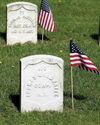
Putting the Pieces Together
Americans needed to begin to put the past behind them, come together, and plan for the future in the spring of 1865. But Abraham Lincoln, the man best equipped to lead them and who had hoped to restore the country as smoothly and peacefully as possible, had been assassinated.
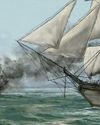
LAST SHOTS
The last Confederate forces in the Civil War didn’t surrender in the spring of 1865 or on a battlefield.
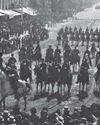
AND IN OTHER 1865 NEWS
A group of African Americans stop at the White House’s annual public reception on January 1, where they shake hands with President Abraham Lincoln.
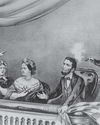
A Plot to Kill President the
For several months, actor John Wilkes Booth’s band of conspirators had plotted to capture President Abraham Lincoln and hold him hostage in exchange for Confederate prisoners.
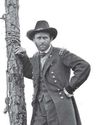
Let the Thing Be Pressed
In June 1864, Union Lieutenant General Ulysses S. Grant began a nearly 10-month campaign in Virginia.
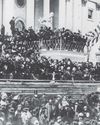
HEALING THE NATION
President Abraham Lincoln took the oath of office for the second time on March 4, 1865.

A Helping Hand
The spring season is hard in any agricultural society. Plants and animals are too small to eat.
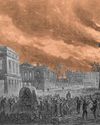
WAR SHERMAN-STYLE
As far as Union Major General William T. Sherman was concerned, the Civil War had gone on long enough.
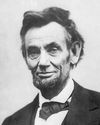
PEACE TALKS
The fall of Fort Fisher made clear that the Confederacy’s days were numbered. Southerners were tired and hungry.
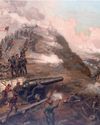
FORT FISHER'S FALL
Outnumbered Confederate soldiers inside Fort Fisher were unable to withstand the approach of Union troops by land and the constant Union naval bombardment from the sea.